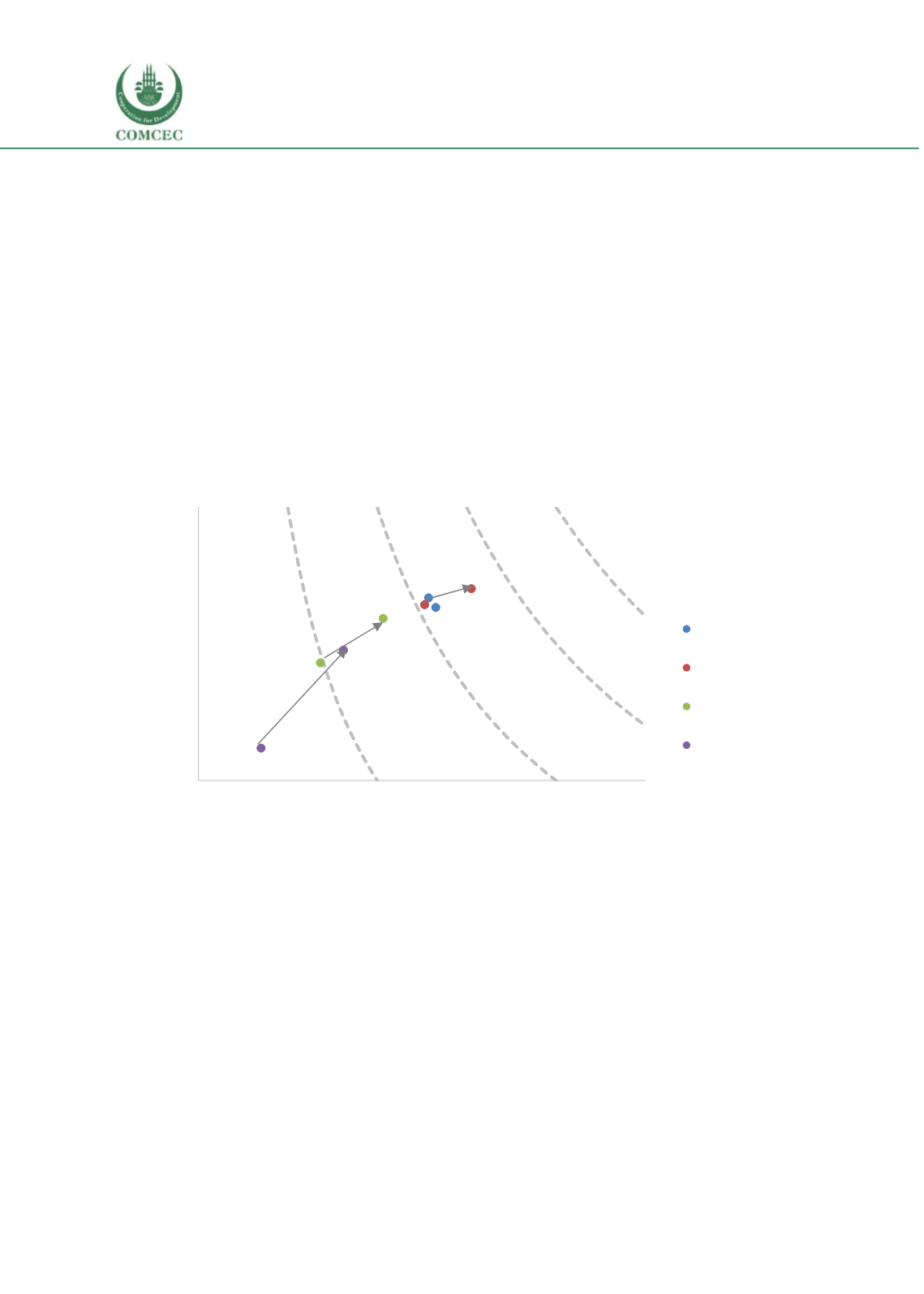

Education of Disadvantaged Children in OIC:
The Key to Escape from Poverty
72
Measuring Inequality of Opportunity in Access to Education in Senegal using the Human
Opportunity Index
Section 2.1 has shown significant disparities in schooling access rates in terms of poverty, region,
location and education level of the parents.
Using the DHS data, this section will analyse the inequality of opportunity in education
using the Human Opportunity Index (HOI) approach (see Annex 1 for further details on
methodology and interpretation).
The HOI is an index ranging from 0 to 100 which adjusts the
percentage coverage of a service by penalizing inequality across different predefined
circumstance groups. The HOI for education indicators for Senegal (See
Figure 27)are low in
general. In 2015, the highest HOI was 51.9 percent for attendance in school for 12-15 year olds
while the lowest HOI is for finishing 8 years of education for 16-18 year olds and it is only 24
percent.
Figure 27 HOI, Coverage and Equality of Opportunities for Senegal, 2005-2015
Source: Authors’ calculations using DHS 2005 and DHS 2015
While still low in 2015, the HOI did improve in the last 10 years. From 2005 to 2015, the HOI
increased by 10.4, 13.4 and 16.1 percentage points for attendance in school for 12-15 year olds,
finishing 5 years of education and finishing 8 years of education respectively. These
improvements in HOI were due to both an increase in coverage and a decrease in inequality for
indicators on finishing school whereas for attendance of 12-15 year olds it was mostly due to an
increase in coverage (see
Figure 27). Despite the improvements for these indicators, for
attendance in school of 6-11 year olds the improvement was negligible. In the last 10 years the
HOI for this indicator increased by only 0.4 percentage points.
Looking at the contributions to the inequality, it is found that
region and location
contribute the
most while gender has a negligible impact (Se
e Figure 28). The Shapley decomposition results for
Senegal show that in 2015,
region is the factor that contributes the most to inequality
for
2015
2005
2015
2005
2015
2005
2015
2005
50
60
70
80
90
100
0
20
40
60
80
100
Equality of Opportunity (1-D)
Coverage
Attendance 6-11
year olds
Attendance 12-15
year olds
Finishing 5 years of
education
Finishing 8 years of
education
HOI=40%
HOI=60%
HOI=80%
HOI=20%
















